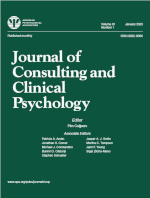Introduction to Psychology 1/IPSY101/Contemporary Psychology/Professional societies
Professional societies for psychologists
Reflective of the discipline’s diversity is the diversity seen within the American Psychological Association (APA), the largest organization of psychologists in the world (with 56 divisions). Its mission is to advance and disseminate psychological knowledge for the betterment of people. Reflecting the diversity of the field of psychology itself, members, affiliate members, and associate members of the APA span the spectrum from students to doctoral-level psychologists, and come from a variety of places including educational settings, criminal justice, hospitals, the armed forces, and industry (American Psychological Association, 2014[2]).North of the border, we have the Canadian Psychological Association (CPA). The CPA is a professional organization representing psychologists in Canada. Its objectives are:
- To improve the health and welfare of all Canadians;
- To promote excellence and innovation in psychological research, education, and practice;
- To promote the advancement, development, dissemination, and application of psychological knowledge; and
- To provide high-quality services to members.
There are 31 sections within the CPA, representing a wide variety of specialties that range from Traumatic Stress to Criminal Justice Psychology to Industrial/Organizational Psychology.
According to Brock (2013[3]), "Canadian psychology was slow to develop in comparison with its American counterpart, and Canadian psychologists relied heavily on American institutions in the early part of the 20th century. The CPA was not founded until the start of the Second World War, and thus many Canadian psychologists became involved in the affairs of the APA. The tradition of the APA holding its meetings in Canada began quite early, with the annual meeting in Toronto in 1931."
A third major professional society for psychologists is the Association for Psychological Science (APS), which was founded in 1988 to advance the scientific orientation of psychology. Its founding resulted from disagreements between members of the scientific and clinical branches of psychology within the APA. The APS publishes five research journals and engages in education and advocacy with funding agencies. A significant proportion of its members are international, although the majority is located in the United States.
Click here for a list of professional societies for psychologists outside of North America.
References
- ↑ Wikipedia. Professional association
- ↑ American Psychological Association. (2014). Retrieved from www.apa.org
- ↑ Brock, A. C. (2013). Introduction to the special issue on the history of psychology in Canada. Canadian Psychology, 54(2), 87-93.
- Source
- This page was proudly adapted from Psychology published by OpenStax CNX. Oct 31, 2016 under a Creative Commons Attribution 4.0 license. Download for free at http://cnx.org/contents/4abf04bf-93a0-45c3-9cbc-2cefd46e68cc@5.52.


